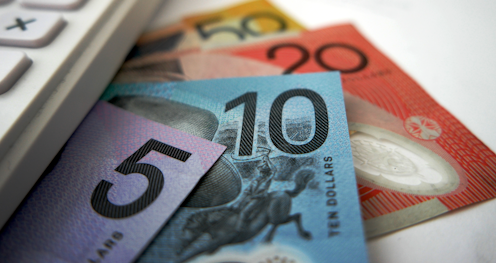stealth tax rises are eating into your income – but we know the solution
- Written by Richard Holden, Professor of Economics, UNSW Sydney

A curious feature of the Australian tax system is “bracket creep”. Taxpayers whose income climbs by no more than prices (inflation) get no increase in their living standards. Instead, they see more and more of their income pushed into their highest tax brackets, or to even higher tax brackets.
It means the government’s income from income tax keeps climbing, even if there are no more people paying it and the value of what they earn hasn’t climbed.
Here’s how it works. The first A$18,200 are tax-free, the rest up to $45,000 are taxed at 19 cents in the dollar, the rest up to $120,000 at 32.5 cents in the dollar, the rest up to $120,000 at 37 cents in the dollar, and anything in excess of $180,000 is taxed at 45 cents in the dollar.
Australia’s income tax scale
What each extra dollar of income is taxed at, excluding Medicare levy and offsets







